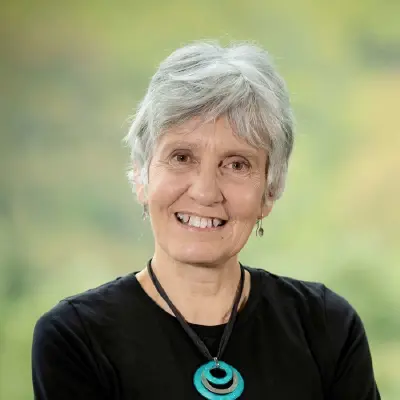Professor Niki Harré, Head of the School of Psychology at the University of Auckland, and author of Psychology for a Better World: Working with People to Save the Planet and The Infinite Game: How to Live Well Together, shares her vision of resilient, compassionate, and creative communities as the foundation for sustainability. As discussed in her recent TEDx talk, Niki is particularly interested in promoting deep dialogue, constructive decision-making, and collective action for human and ecological flourishing. In this episode, she underscores how psychology—often overlooked in environmental work—is vital for fostering a people-focused approach and driving meaningful systems change.Niki emphasises the power of stories and behaviours to inspire action, advocating for narratives of hope and compassion rather than focusing solely on crisis. To combat negativity amid the constant messages of environmental doom and gloom, Dr Harré discusses the importance of working with others and sharing positive values, to build resilient communities. We also explore how common identity points can strengthen communication on sustainability issues, fostering understanding and commitment.At the heart of her philosophy is an “infinite game” mindset, where the goal is to keep what we most value in play, while inviting others to join – for it is together that we can create resilient social movements, sustain hope, and work toward a more generous, equitable world, with a flourishing environment and compassionate communities.In this episode, Niki discusses:
What initially drew her to psychology and her passion for community well-being and sustainabilityThe shift away from community-based approaches as society moves more onlineHer two books, Psychology for a Better World: Working with People to Save the Planet and The Infinite Game: How to Live Well TogetherConcerns with “problem-focused” approaches in sustainability circlesThe concept of “copying” behaviours to foster a more sustainable futureThe impact of positive and negative emotions on facilitating change and transformationTips for staying emotionally buoyant in the face of apocalyptic narrativesThe critical importance of self-identity and living in accordance with one’s valuesBeing a ‘tidy person’, practising mindfulness, and taking extreme care with material resourcesMoving away from “us vs. them” mentalities and instead asking what kind of world we want to live inThe importance of engaging with young people in sustainability effortsHer “Secular Priest” experiment and what it taught her about communityHer parting thoughts for advocates and communities on building resilience and maintaining hopeTo view all the links to the websites and documents, visit the show notes on our website.Please support our work and enable us to deliver more content by buying us a coffee or becoming a member of Athletes for Nature.Follow us on Instagram, Facebook and Bluesky, subscribe to this podcast, and share this episode with your friends and family.
